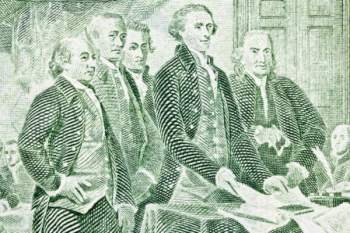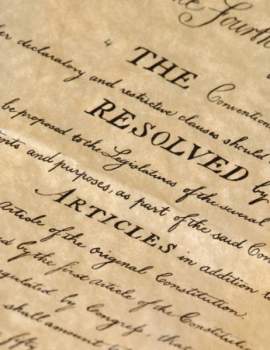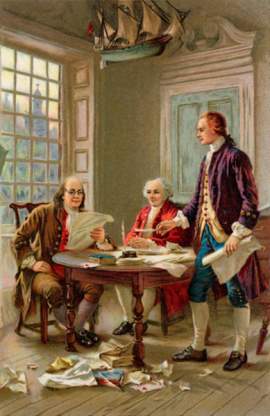
A Quick Guide to Elbridge Gerry

Popular In Constitution
Purpose Of Lifetime Appointment And Pros And Cons Enumerated Powers Bicameral Legislature Background Article 3 Of The Constitution We The People 1st Amendment Who Wrote The Constitution Judicial Review Equal Protection Clause 5th Amendment 10th Amendment Three Fifths Compromise
Founding Fathers: Elbridge Gerry
Elbridge Gerry was a delegate for Massachusetts to the Continental Congress. He signed the Declaration of Independence, but was opposed to the Constitution and did not sign that. In 1810, Gerry was elected Governor of Massachusetts. Here, he became well known for creating electoral districts for political gain, which is now known as "gerrymandering". Elbridge Gerry was Vice President under James Madison and supported the War of 1812.
Early Life of Elbridge Gerry
Elbridge Gerry was born on July 17, 1744 in Marblehead, Massachusetts. Elbridge Gerry’s parents were Thomas Gerry, a merchant, and Elizabeth Greenleaf. Gerry graduated from Harvard in 1762 and afterwards entered his father's business. Between 1772 and 1773, Gerry was a member of the Massachusetts legislature and General Court, where he served on a Committee of Correspondence. He was also a member of the Massachusetts Provincial Congress between 1774 and 1775. Between 1776 and 1780, he was also a delegate to the Continental Congress which was held in Philadelphia. Here he was an early advocate of the colonies’ independence from Great Britain.
Political Career of Elbridge Gerry
Gerry was also a member of Congress from 1783 to 1985 under the Articles of Confederation as well as a delegate to the Constitutional Convention in 1787 in Philadelphia. He was a very outspoken challenger of the United States Constitution being ratified, worrying that the document might give way to monarchical or aristocratic rule. However, Jerry gave the Constitution his full support after its ratification, assisting in the drafting of the Bill of Rights and acting as a representative in
Congress between 1789 and 1793 for two terms.
In 1797, President John Adams sent Elbridge Gerry, Charles Cotesworth Pinckney, and John Marshall to France on the job that resulted in the XYZ Affair. This mission was an unsuccessful attempt to negotiate some sort of treaty to settle many long-standing disputes. The mission ended early due to the dishonest treatment of the American negotiators by Charles-Maurice de Talleyrand, the French foreign minister, and his subordinates. After the French agents requested bribes, Pinckney and Marshall departed in disgust. However, Elbridge Gerry stayed in Paris with the vain hope that Talleyrand might give him, a well known friend of France, terms to a treaty that had been refused to Pinckney and Marshall. This act brought a storm of censure and abuse from Federalist partisans, from which Elbridge Gerry never cleared himself fully.
Elbridge as Governor of Massachusetts
After four tries to win election as governor of Massachusetts, Elbridge Gerry finally succeeded in 1810 and was then reelected in 1811. Gerry’s administration was known for its use of what became later known as gerrymandering, where he would divide the electoral districts for partisan political advantage.
Elbridge as Vice President
In 1812 Elbridge Gerry, a strong supporter of the War of 1812 against Great Britain, was elected vice president of the United States with Madison on the Jeffersonian Republican ticket. In 1813, while presiding over the Senate, Elbridge Gerry, who along with Madison was not in good health, refused to yield his chair at the end of the legislative session, thus preventing William Giles, who was a Virginia Senator and a promoter of peace with Britain, from being president pro tempore of the Senate and succeeding the president in accordance to Presidential Succession Act of 1792. On his way to the Senate, Elbridge Gerry suffered a hemorrhage of the lungs and died on November 23, 1814.


















